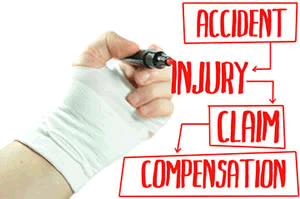Impairment Rating
What does Impairment Rating mean?
An impairment, which is defined as a functional or anatomic loss or abnormality which restricts the worker's ability to work, may occur after a work-related injury. The impairment may be temporary or permanent. After a work injury an impairment rating is assigned to the worker's impairment which determines the percentage estimate of the amount of normal use lost from the affected body part. The impairment rating is based on guidelines published by the American Medical Association (AMA).
Impairment ratings generally come from the worker's doctor or an Independent Medical Examination. The general assumption is that the insurance company doctor has the greatest incentive to give you the lowest possible impairment rating, which is why some states require a truly independent examination to determine impairment ratings. Regardless of the rate given, the goal of assigning a rating is to compensate you for some type of loss to a specific body part (i.e. to calculate Permanent Partial Disability PPD benefits).
The impairment rating does not consider pain and suffering, and it does not consider how your impairment has lowered your ability to perform certain activities. For example, a 15% impairment rating does not mean you necessarily retain the functional capacity to do 85% of the work tasks you did before. In fact, you could have very serious injuries, but your impairment rating could be fairly low. For example, a person who is seriously burned
could retain their functional ability to perform their job despite their severe injury.
Challenging the impairment rating
If a worker is not satisfied with the impairment rating they are given they may be able to file a claim for a higher rating, especially if another doctor supports their claim. If there is a dispute the claim can be filed before a compensation judge for determination.
Questions about impairment ratings should be reviewed by work comp lawyers. Consider, insurance companies have experienced claims adjusters and attorneys working for them and they will try to pay you as little as possible for your injuries.
Related Pages
Lawyers near
Term of the Day
Medical evidence
Medical evidence is information gathered by the SSA from a claimant\'s treating sources.Category: Disability







